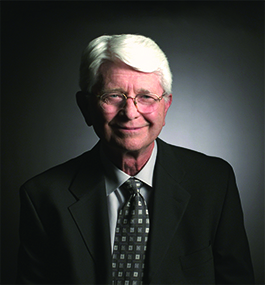Speaking Out About a Hidden Language Disorder

Tom Broussard, Heller PhD’06, P’02
One day in 2011, Tom Broussard, Heller PhD’06, P’02, was walking with his wife not far from the Brandeis campus when he suddenly fell to the ground.
Broussard, who was then associate dean for admissions and career services at the Heller School for Social Policy and Management, was taken to a hospital, where he was diagnosed with an ischemic stroke. As a result of the stroke, he lost the ability to read, write, and speak fluently, symptoms of the language disorder aphasia.
Yet he didn’t get a copy of his aphasia assessment until the following year, long after being discharged.
“Once I woke up at the hospital and came to understand what had happened, I assumed that everything was fine,” he wrote, years later, in his Aphasia Insights newsletter. “I didn’t realize that there was one more deficit that I didn’t know about.”
Aphasia is not always understood by patients or properly explained by medical providers, despite being experienced by 25-40% of people who suffer a stroke, according to National Aphasia Association statistics. One of the biggest problems, Broussard has learned, is that stroke-centered hospitals often treat physical problems only. Once patients are stabilized, they’re discharged, some to specialized inpatient facilities, most, like him, to their homes.
Broussard says it took him four years to be able to hold “a decent conversation” following his stroke.
Now he’s using his voice to help others struggling to reclaim theirs. In 2015, he founded Stroke Educator, an awareness campaign that aims to reach patients, families, and clinicians in all 50 states. Five years later, he founded Aphasia Nation, a nonprofit that took the campaign international.
As part of his work, Broussard audits how hospitals communicate with patients and communities about aphasia. In January, his foundation inventoried the websites of 129 stroke-centered hospitals and found that 87% of them offered little to no information about aphasia.
“Many hospitals don’t even use the word,” Broussard says. “Their focus is on the physical symptoms. They want to get us ready as quickly as possible for rehab. But that can take a while, and, meanwhile, patients are experiencing aphasia and losing a lot of the opportunity they have to recover.”
He’s hopeful for continued growth in aphasia awareness, especially in the wake of recent high-profile cases, most notably that of Bruce Willis. In March 2022, Willis’ family announced the actor had received a diagnosis of aphasia caused (according to later reports) by frontotemporal dementia.
Broussard’s expertise in aphasia education represents something of a full-circle experience for him. While pursuing a PhD at Brandeis, he learned how to conduct research. After he earned the degree, he wasn’t sure how best to keep using that skill set.
“Five years later, I had the stroke,” he says. “That’s when I realized, ‘Oh, this is what these tools are for. This is what everything I learned is all about.’”
— David Eisenberg
